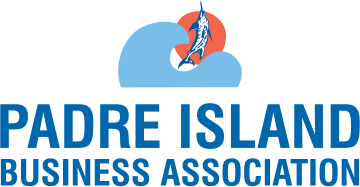By Kelly Trevino, Regional Director, Corpus Christi and Victoria Better Business Bureau
In the aftermath of disasters such as Hurricane Harvey, which devastated communities across the Texas coastline, you often hear stories of people coming together to help one another. Unfortunately, it’s not long before you start to hear stories of storm survivors getting victimized a second time by so-called “storm chasers.” These scam artists target people whose homes and property have been damaged or destroyed and who are eager to get back to some sense of normalcy. For many residents and local businesses, it may be difficult to tell which contractors are “fly-by-night” scammers or a legitimate operation.
There are several ways a contractor can avoid looking like a red flag to those they want to help during recovery:
Proper Licensing
- When it comes to licensing, not having the proper papers for the particular city a contractor wants to work in sends out a bad signal to potential clients. Unlicensed contractors often travel out of state in an attempt to take advantage of those in need.
- In Corpus Christi, the city’s Development Services Department oversees the permitting and inspection of building construction, repairs and remodels.
Show Off BBB Accreditation
- It could be a decal on the vehicle or a sticker somewhere on the contract bid. BBB Accredited material can be acquired by contacting us.
- It is also important for employees who are out in the field to know about the company’s accreditation and rating with BBB.
- Of course, the contractor should always encourage residents and businesses to look them up on BBB’s website.
Payment Methods
- Limit the amount of money that is asked upfront. One good rule of thumb is to never ask for more than a third of the bid price before beginning work. Scammers will often ask for the entire bid price up front before they will do any work.
- Never ask a potential client about their insurance payments. Fraudulent contractors will sometimes ask people how much their insurance payments are and will base their bids on that payment.
- An insurance company can also set up a third-party escrow account with the client. The insurer will be able to control how much money the contractor can pull from the account at certain times.
Responsibility During Cleanup
- This part of the job is often not fully discussed between the contractor and client.
- Debris removal should be specified in the contract if the bid includes that item. Otherwise, residents and businesses may assume debris removal is part of the contract when, in fact, it’s simply moved to the roadside for pick-up where it could remain for weeks.
- Contractors should also know local landfills could be full and to prepared for potential extra costs if they have to haul the debris to another city.
Kelly Trevino is the regional director for the Corpus Christi/Victoria area of Better Business Bureau serving the Heart of Texas. Kelly is available for media interviews and speaking engagements. You can reach her by phone: (361) 945-7352 or email: ktrevino@corpuschristi.bbb.org.
